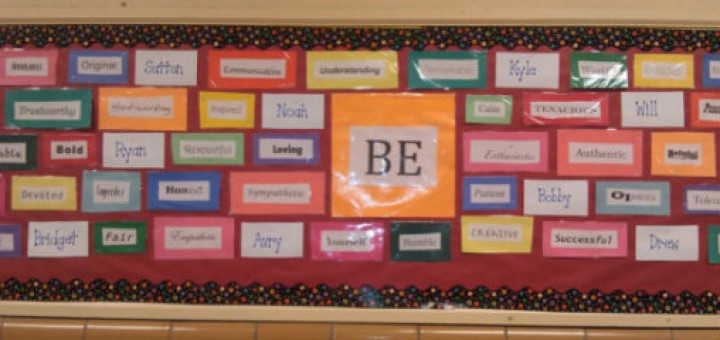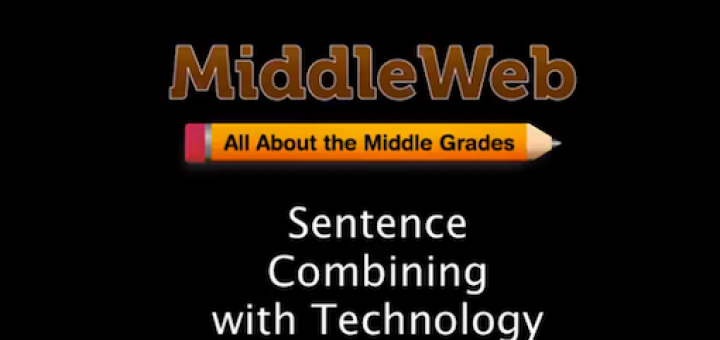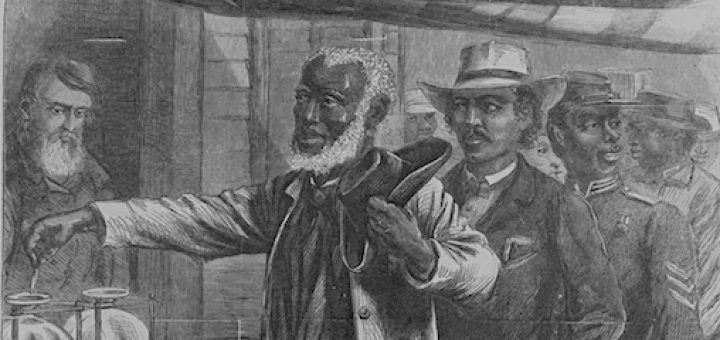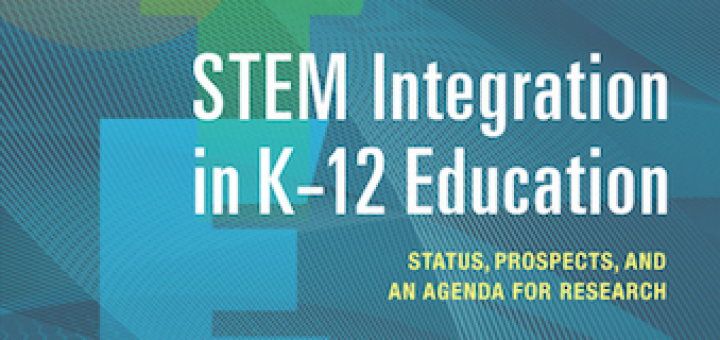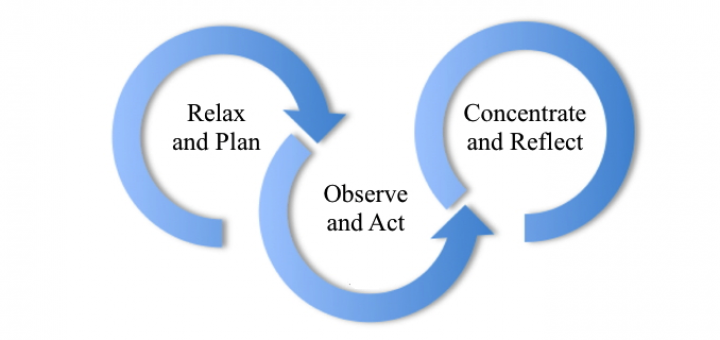Teaching and learning in grades 4-8
Regie Routman’s Read, Write, Lead could not have come out at a better time. Reviewer Matt Renwick says the veteran educator brings much needed sanity to the learning discussion, emphasizing the link between school leadership and literacy success.
“What we choose to BE defines us.” That’s the message Mary Tarashuk’s students found as they arrived at her door this year. Her bright red bulletin board is filled with possibilities she hopes will focus kids on important social-emotional skills.
The Common Core experience may leave a sour taste on some educators’ palates, middle school ELA teacher Amber Chandler concedes. But she and her colleagues are coping with new challenges and limited resources by making their own brand of CCSS lemonade.
Technology allows us to record and reflect on the writing process in ways that pencil and paper could not, says digital writing expert Troy Hicks. The MS teacher turned college prof demonstrates with a video demo’ing how we might teach sentence combining.
Pressed for time at the end of the year but determined to engage her history students in the post-Civil War era, Jody Passanisi turned to a pre-made lesson from SHEG. Before long her students were debating the impact of Reconstruction on American history.
“Close Reading in Elementary School,” by Betsy and Diana Sisson, offers upper elementary teachers a framework for creating lessons; ways to link close reading, writing and talking; a model for gauging text complexity, and a reasonable approach to rigor, says reviewer and 4th grade teacher Linda Biondi.
“How Teachers Can Turn Data into Action” is an excellent guide to planning, ordering, and running data talks that lead to better instruction. Teacher-reviewer Dina Murphy also recommends its appendix, filled with protocols, flow charts and checklists to help get your team started.
“Common Core in the Content Areas” not only makes a convincing case that content-area teachers can be “literacy teachers” when it serves their purposes, says reviewer Sarah Goodis-Orenstein, it also provides “a bunch of teaching and planning tools” and collaborative learning tasks.
S.T.E.M. or STEM? STEM or STEAM? STEM for a selected few or STEM for all? What about STEM’s specific technology needs? MiddleWeb’s STEM by Design blogger Anne Jolly shares five hot STEM issues facing educators as schools across the USA begin a new year.
This summer Elizabeth Stein provided PD support to colleagues during a successful “camp” that helped struggling students develop a growth mindset & more academic confidence. Reflecting back, she draws 3 connections between mindfulness & co-teaching.


